Mavericks. We're a community of them. Not the big wave type (although we count many surfers and beach goers among our 7,000+ student body and our 230+ faculty and staff). We're the change makers, the mold breakers, a collective of wave makers who aren't afraid to forge new paths in our pursuit to create positive change. Below, we invite you check out the stories and work of some of our bold students, faculty and alumni who embody the school's boundaryless spirit. And if you're interested in joining us, reach out - we'd love to have you.
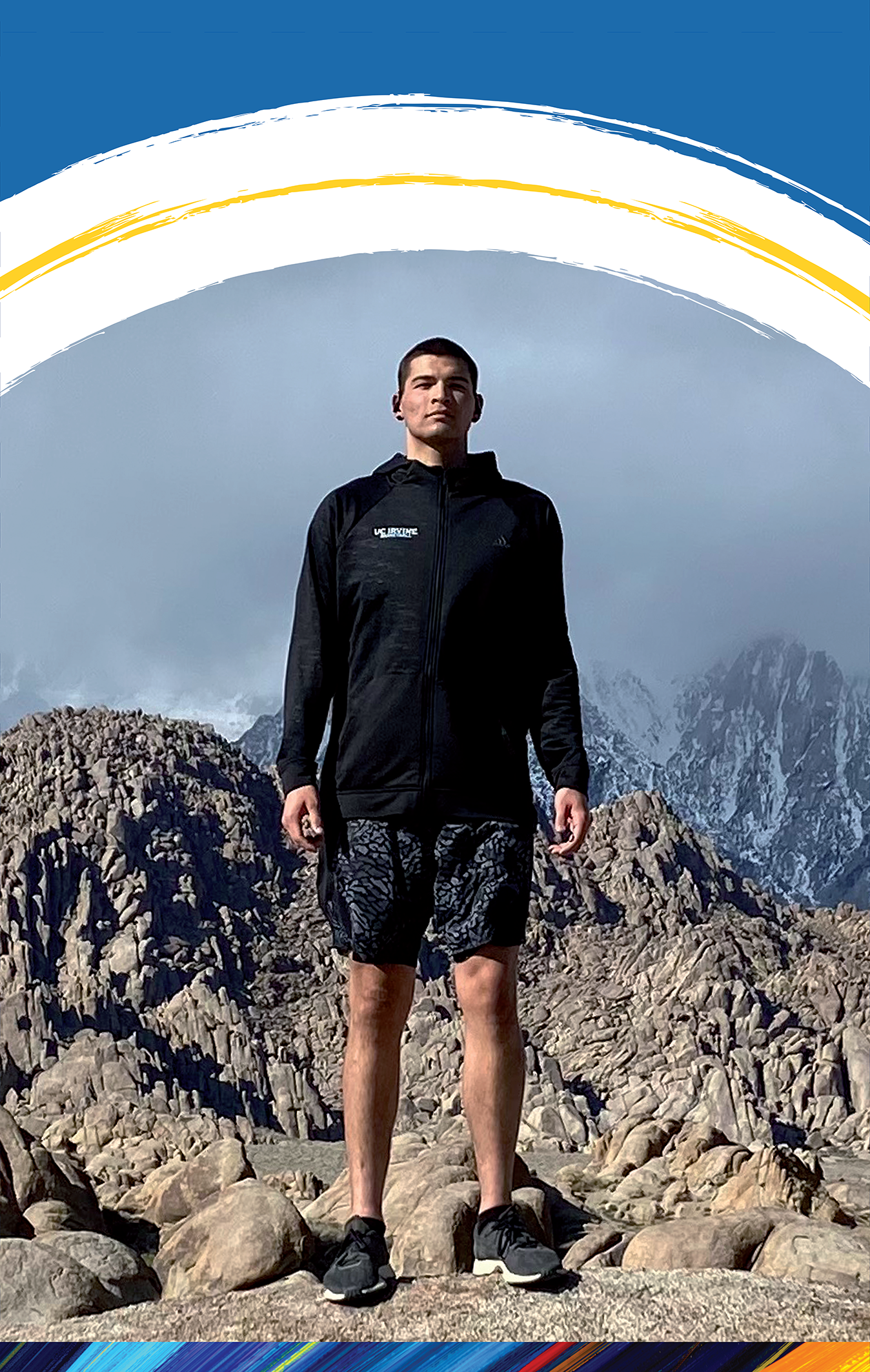 creating new collegiate pathways
creating new collegiate pathwaysBrad Greene
'21 sociology
Brad Greene has spent much of his life standing out. At 6’11”, he’s decidedly difficult to miss. Then there’s that (considerable) talent he has in basketball, which he put in play as an Anteater for four seasons. He’s got tattoos, the inspiration for which he will happily share. But perhaps how Greene stands out the most is via his role in elevating the college experience for fellow Native American students.
As a freshman, it was his Introduction to Sociology class that piqued an interest he would ultimately decide to pursue: race and ethnic studies. Throughout his studies, his sociology courses have helped him develop his own framework for understanding how racism is experienced differently by varying ethnic groups. Particularly, he’s discovered that in academia, the Native American voice in conversations on race is often absent, misunderstood or marginalized. This under-representation is reflective of many issues, including the dearth of Native American students in higher education, the inadequacy of published research, and the lack of coursework centric to the Native American experience. Greene sees this lack of awareness as an academic gap that desperately needs filled.
As a Native American student, there’s a lot that people don’t understand about us,
he says. The racism that we face is never really considered.
Greene would like to be a part of the solution. He sees himself as being in a unique
situation to positively influence Native American youth to pursue higher education.
There are not a lot of Native Americans in college because they don’t want to go somewhere
they’re out of place or somewhere they’re not familiar with,
he says. By serving as an example to his younger peers, Greene hopes to mitigate
some of the fear that young tribal members face when considering college, sometimes
as the first in their family to do so. As a guest speaker at NABI, Greene shows his
younger peers that there is a place for them in higher education. Greene would also
like to see programs on college campuses to help increase graduation rates for Native
American students. Though there are programs to encourage enrollment in higher education
among Native Americans, there is never really that true understanding of what it takes to last in college,
says Greene.
He also wants to play a role in elevating the profile of Native Americans in race-related
conversations, whether academically, socially or in the media. Highlighting the importance
of leadership from within his community, and the need to develop meaningful conversations
that are specific to Native American experiences, Greene wants to help his community
develop a voice to speak for ourselves, rather than being spoken for by parties who don’t
know what is going on with us.
Learn more about his plans to create new collegiate pathways for his Native American peers as a recent graduate with a double major in sociology and education, a specialization in children’s learning and development, and a minor in anthropology, and now starting his professional basketball career in Germany:
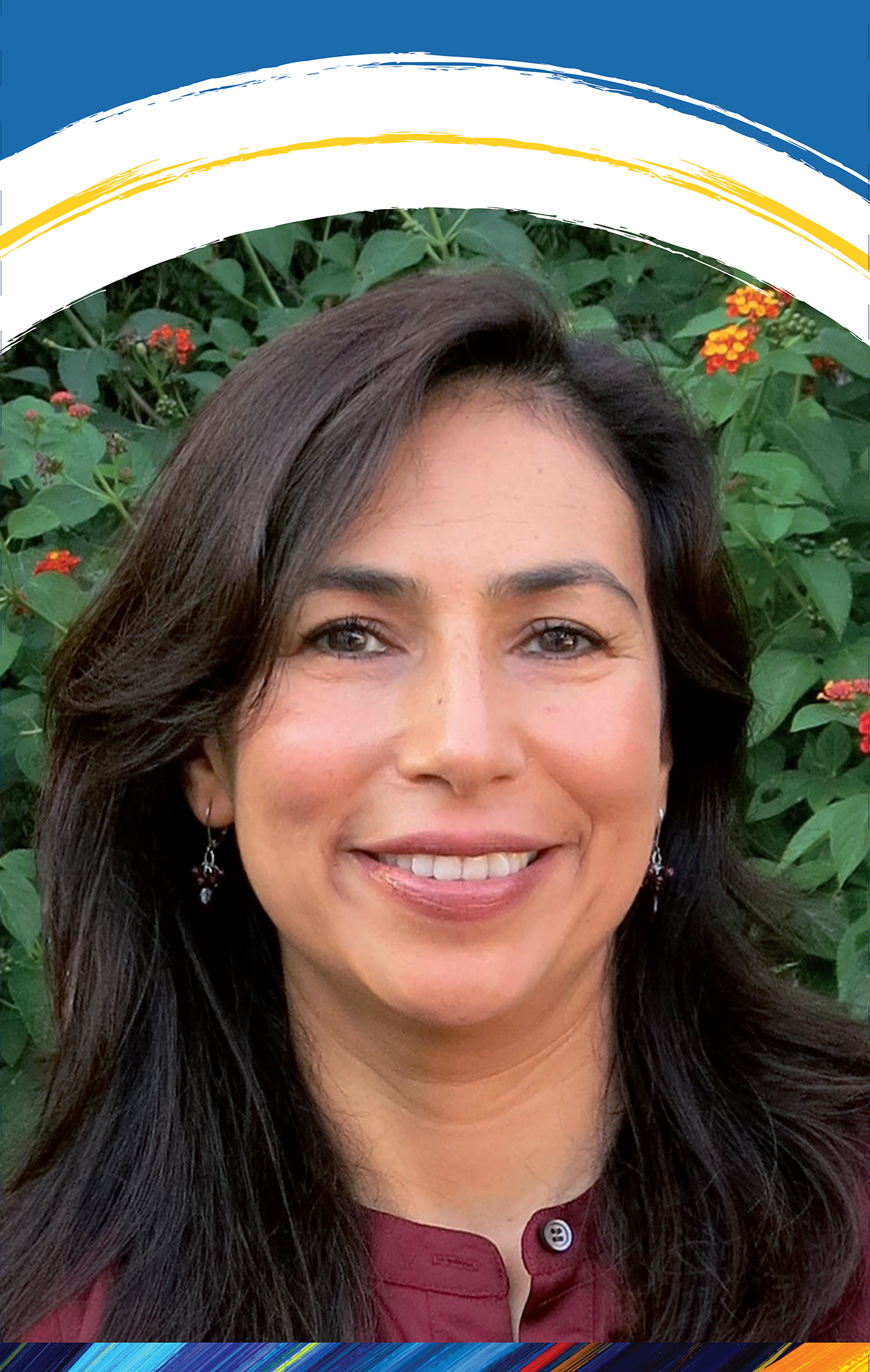 power of positivity and making happiness a habit
power of positivity and making happiness a habitBelinda Campos
Professor and Chair, Chicano/Latino Studies
Stuck in a rut? UCI Chicano/Latino studies professor and chair Belinda Campos says
practicing
positive emotions can help prevent or work with everyday doldrums and weariness -
and it's good for your overall health. A key piece of that involves cultivating and
relying on good relationships - a topic she's studied as a social scientist for the
past 15 years. Her work has found sociocultural contexts that emphasize prioritizing
others before the self - like that of Latino and East Asian cultures - can be beneficial
for relationships and protective of health.
She recently shared a few tips with NPR on how to make happiness a habit, starting
with shared appreciation. Get together with some friends and write out on cards three
things that you're grateful for in the other person, she says. Then share the cards
with each other. We're using this task right now in my laboratory, and it seems to be very evocative
of positive emotion,
she says. And though the data is preliminary, she says, what we see so far is that people enjoy writing what they appreciate in others, and
they enjoy sharing it with the other person. It seems to be affirming bonds.
Sometimes it even ends in hugs.
Want to learn more about making happiness into a habit, or unique cultural traits that yield positive health benefits?
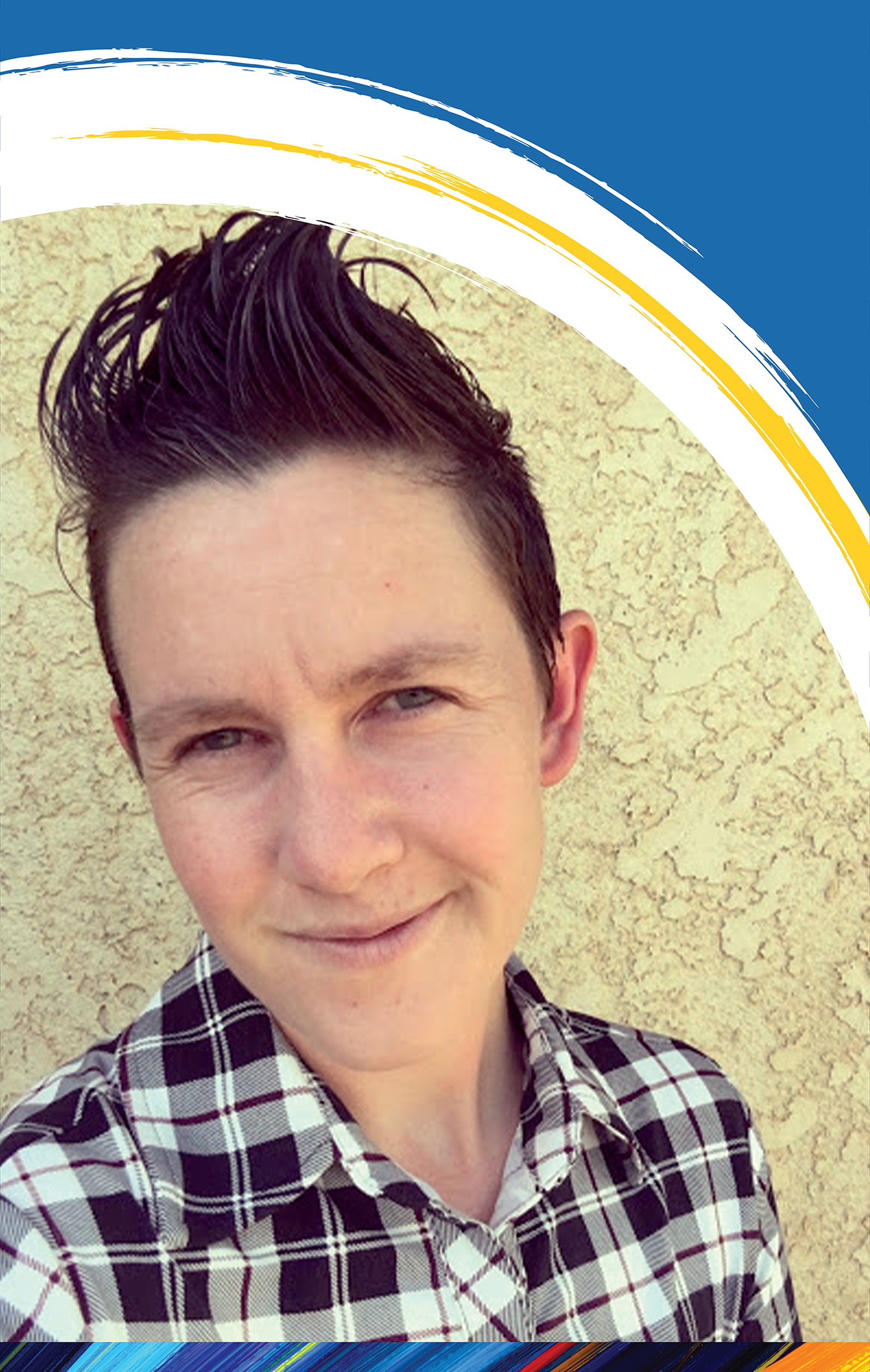 environmental stewardship in a politically-charged space
environmental stewardship in a politically-charged spaceNeak Loucks
Graduate Student, Anthropology
Growing up in a small rural town in Western Montana, Neak Loucks developed an early love for the outdoors and, later, an academic interest in the complicated issues surrounding land management. Now a graduate students in the Department of Anthropology, Loucks pursues research on conflicts around public land management and use, considering the challenges and double binds that agencies, advocates, and land users come up against as they strive to bring about particular landscapes and management regimes. Focusing ethnographically on how these interactions and efforts play out around a contentious national monument in southern Utah, Loucks probe what kinds of education can play a role in addressing complex questions of environmental stewardship in a politically-charged space.
With efforts to shape public land management spanning from local communities to national
movements, and with numerous tacit and explicit value systems coming head to head,
my interlocutors and I are forced to grapple with what it means to acknowledge and
respond to such differences in an ever-changing political environment and an evolving
field of conservation,
they say. My research seeks to be in conversation with those working conservation and land management
fields, challenging default assumptions to work toward newly envisioned ways of carrying
out land management and education.
Interested in learning more?
 music and the brain
music and the brainSolena Mednicoff
Cognitive Sciences Ph.D. '21
Growing up in Las Vegas, Solena Mednicoff trained to be a classical pianist with plans
to perform at the highest level. Along the way, she developed an equal passion for
science. She combined the two as an undergrad at the University of Nevada, Reno where
she earned a bachelor’s in neuroscience and minor in piano performance. She then applied
and was accepted to UCI’s highly ranked graduate program in cognitive sciences where
she’s pursued research on how music affects the human brain. As someone who is interested in music and auditory research, it was valuable to me
to learn that there was more than one professor, as well as an entire Center for Hearing
Research, dedicated to auditory and hearing research on campus,
she says.
For her dissertation, she created a test that can quickly assess musical aptitude,
regardless of how much musical training or practice a person has. My research has shown that 70% of people - including many musicians with 10+ years
of training - cannot tell the difference between certain musical sequences that are
central to the meaning of music, and that 30% of people can tell these sequences apart
like night and day,
she says. If the test proves to be good assessment measure, she says its application
could help aspiring musicians target their practice accordingly.
Reflecting on her journey thus far, Mednicoff is extremely grateful for her mentors
– most notably UCI cognitive sciences professor Emily Grossman. She’s been a huge mentor and role model through my graduate degree. I would not have
been able to complete the final chapter of my dissertation without her mentorship
and guidance, as she has been invaluable in helping and guiding me over the hurdles
of graduate school,
Mednicoff says. She is truly someone who will take the needed time and energy to help and plan your
graduate journey and beyond, which really highlights how much she cares.
Learn more about Mednicoff's journey and on-going research as a postdoc at UNLV:
 elevating the Black experience on campus and beyond
elevating the Black experience on campus and beyondDavin Phoenix
Professor, Political Science
As an inaugural UCI Inclusive Excellence Term Chair Professor, political science associate
professor Davin Phoenix is serving a three-year appointment to implement programs
that address anti-Black racism and advance Black experience. The author of the award-winning
The Anger Gap: How Race Shapes Emotion in Politics, in which he explores how anger animates political participation differently among
African, Asian, Latinx and white Americans, Phoenix is working alongside the Office
of Inclusive Excellence to create the Consortium on Power and Identity (CPI), a cross-campus
research lab of faculty and graduate students whose research highlights the sociopolitical,
economic, legal and health-related significance of Blackness, and identity more broadly.
Consisting of workshops, working group meetings, and informal rap sessions, he sees
CPI playing a critical role enhancing mentorship and professional development of UCI’s
Black graduate students and junior faculty while facilitating collaborations and publishing
among faculty and students and providing a national showcase for the cutting-edge
work on Blackness coming out of UCI.
His current work includes collaborative projects with academics and community organizers examining:
- Sentiments and narratives that empower or demobilize formerly incarcerated individuals and their familial and communal networks;
- Issue frames that facilitate or inhibit political coalition among Black and Latinx Americans;
- Ways that legislators employ #BlackLivesMatter strategically in their social media messaging; and
- Emotions that Black radical movements across different eras draw upon to drive their visions of liberation.
Learn more about his groundbreaking work:
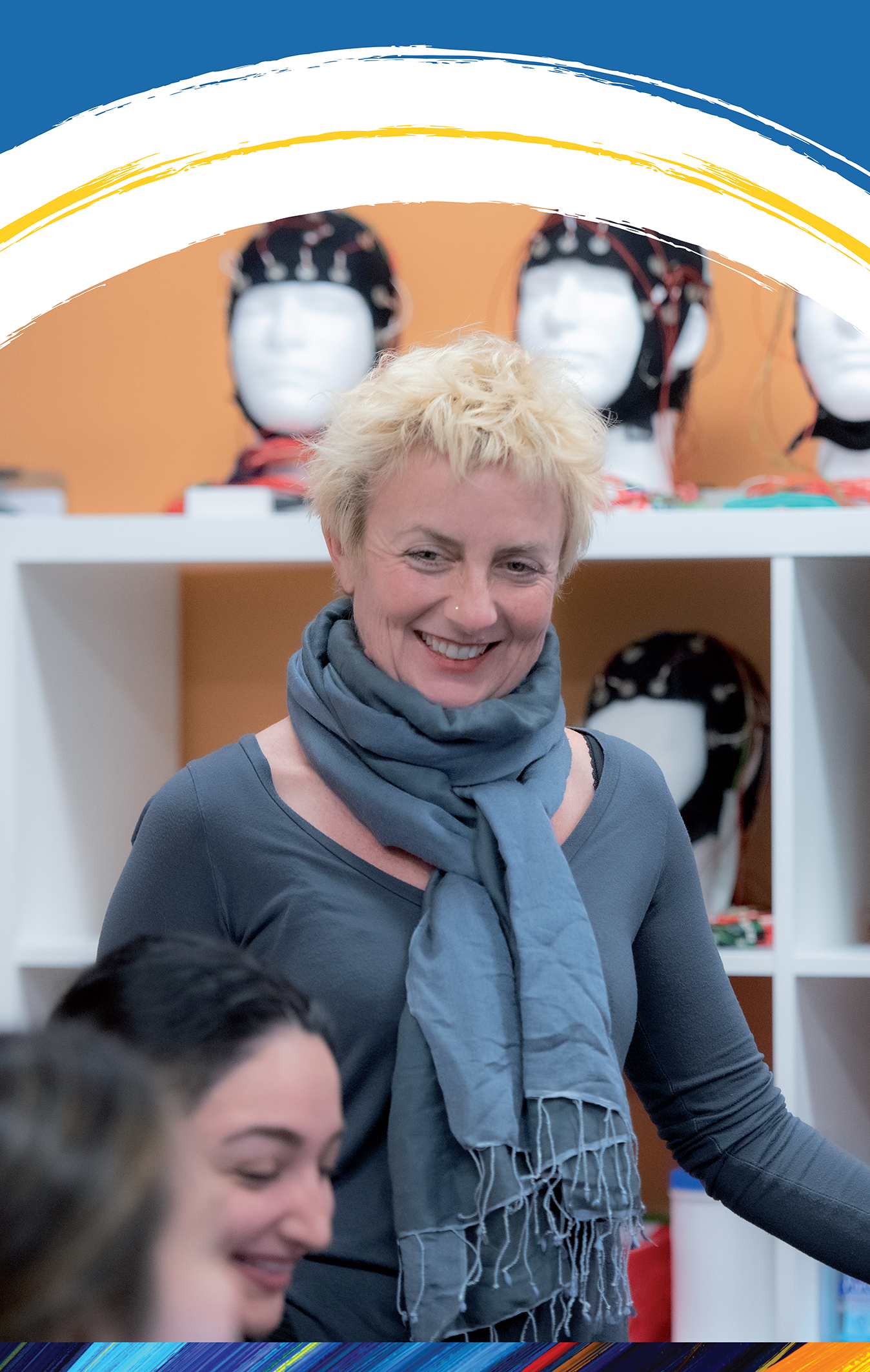 expert on the science of sleep
expert on the science of sleepSara Mednick
Professor, Cognitive Sciences
Sleep – like eating and drinking – is one of our most basic needs (just try going a night without it - past your mid-twenties - and see what happens).
Our bodies perform a number of processes throughout the day – digesting food, information,
feelings - that deplete our natural energy resources and molecular makeup,
says Mednick. Sleep is the antidote to all of our daily active processes.
A good night’s sleep restores glucose metabolism and balance between our fight-or-flight and rest-and-digest processes, so that humans can function - biologically, mentally, emotionally and physically.
The author of Take a Nap! Change Your Life, Mednick is a New York actress-turned Harvard-trained expert on the science of sleep: how it impacts memory, how interventions like pharmacology and electrical brain stimulation can be used to improve it, how sex and age can help or hinder it, how it can help kids be happier, excel academically and have fewer behavioral problems, how commonly prescribed psychostimulants can impair it, and, more recently, how advertisers can manipulate it for commercial gain. The director of UCI’s Sleep and Cognition Lab, she’s pioneered studies using a nap design that’s replaced nocturnal studies as the dominant research method for understanding the role of sleep in memory formation.
Sleep is the only time the brain slows down and recuperates from all of the activity
it’s involved in during the time we’re awake,
she says. In the transition from wake to sleep, the brain goes from a state of high
activity with asynchronous firing of neurons to a much slower pace in which all neurons
begin to fire as one. This synchronized firing allows for the transfer of information
from short-term to long-term storage areas of the brain via large coordinated brain
waves, she explains. As we fall into deeper and deeper sleep, the waves get bigger. At the peaks, neurons
from different brain areas fire together and this allows for the communication and
transfer of information,
she says. This pattern gets repeated over and over across the different stages of
sleep, helping the brain absorb information from the day, commit it to memory, and
restore itself. When this pattern gets interrupted due to poor or lost sleep, cognition
and memory are affected.
Interested in learning more about Mednick's work on such a critical function in our daily lives?
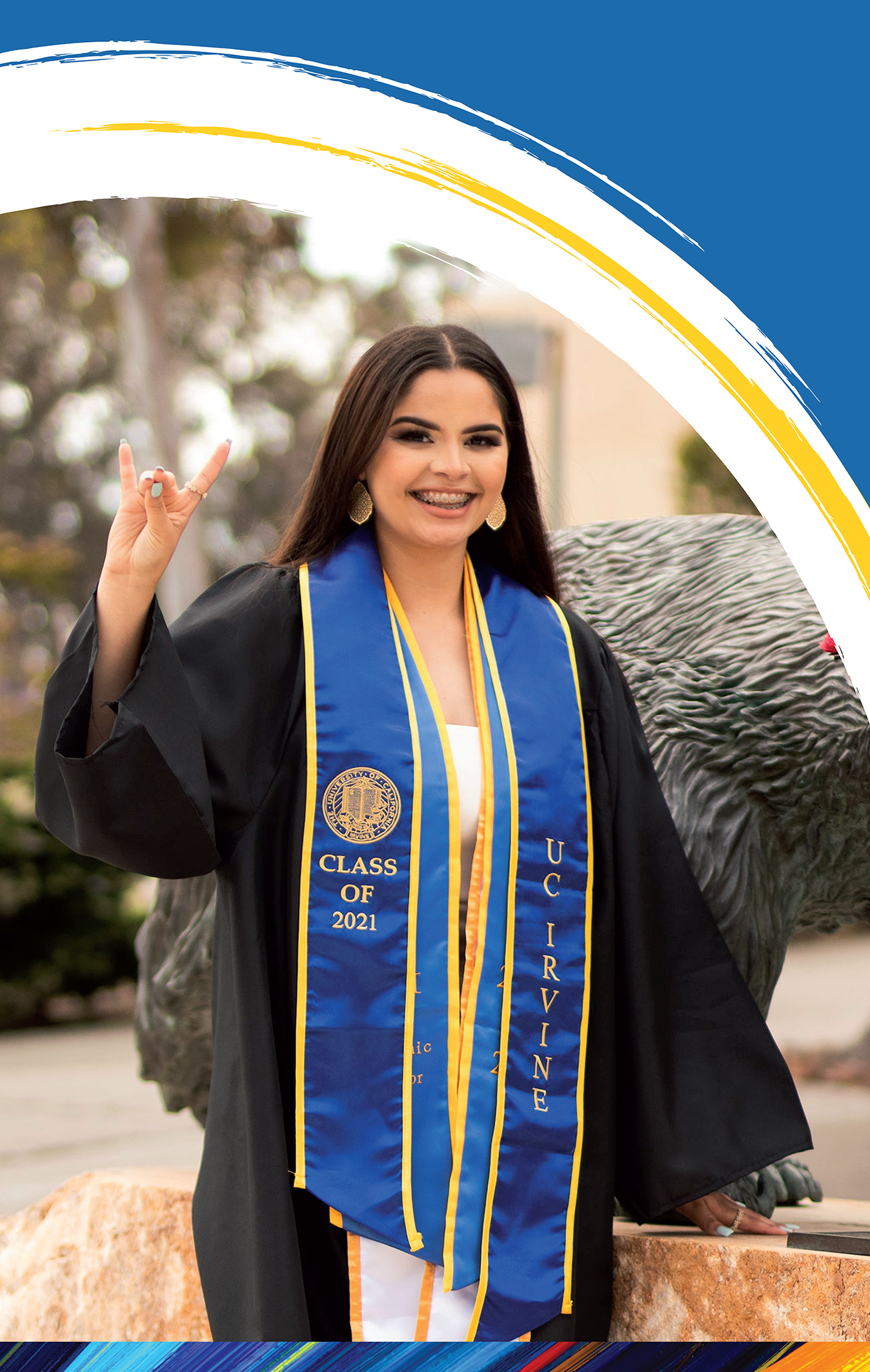 changing young students' lives
changing young students' livesKatia Necoechea Madriz
Psychology '21 Fulbright Scholar
Katia’s Necoechea Madriz's C.V. reads like a laundry list of accomplishments, extra-curricular involvements, and scholarships. She was the UC Irvine Peer Academic Advising Program coordinator. She’s served as a discussion leader for the Summer Bridge Program, a teaching assistant for bilingual education, and she’s helped teach high school students in the Upward Bound program. She’s interned in various capacities for the Student Alumni Association, been a notetaker for UCI’s Disability Center, and is a SAGE Scholar, just to highlight a few of her activities. Oh, and for the 2021-22 academic year, she's teaching high school students in Madrid as a prestigious Fulbright Scholar.
But her own academic successes come second to her real passion, and what she hopes to do once she returns from Spain: foster others' academic accomplishments as an elementary school principal.
The mentorship I have received is why I am so passionate about bringing that support
to other students,
she says. It has changed the trajectory of my education, career opportunities, and life in the
best way. I want to have that impact on others too.
Her personal educational experiences serve as her driving force in her quest to help others succeed in academia. School was a challenge for her in her youth, due completely to circumstances out of her control. Her mother worked days and nights as a cleaner to make ends meet for Katia and her sister, but there were still moments of instability that led to the family having to stay in shelters and move around often. Katia attended six different elementary schools while learning English as a second language. In spite of the difficulties, she persevered and was a star student. Later on as a high-school student and prospective first-gen college student, she relied on organizations like Chula Vista Promise Neighborhood, a local mentorship program, to provide her the advice, resources, and confidence to pursue college and financial aid to make it possible.
Katia made it a priority to return the gift of mentorship, even as she worked through a full university schedule. She volunteered to deliver her own workshops on college applications and financial aid through Upward Bound, and even provided support to local high school students in her hometown of Chula Vista. She says that, ultimately, it’s her goal to provide the same confidence she was given, and make other students feel connected, worthy, and supported.
Learn more about what drives Katia's passion to create change:
 long-term economic and health impacts of pandemics
long-term economic and health impacts of pandemicsVellore Arthi
Professor, Economics
COVID-19’s disastrous impacts are obvious when measured in lives lost, jobs displaces, and a financial downturn that prompted trillions in economic stimulus. These impacts are front and center in the public consciousness, especially as people mourn lost loved ones and worry about how lost wages threaten their ability to pay rent.
But what about two, three or four decades down the line? What will be the long-lasting effects of the pandemic on individuals’ health and finances — and the economy as a whole?
Vellore Arthi, an assistant professor of economics at UCI, has examined the long-term health and economic consequences of previous pandemics and financial crises, including the Black Death of the 14th century, the 1918 influenza pandemic and the Great Depression of the 1930s. Her work - funded by the National Science Foundation - explores what these previous pandemics and downturns can teach us about today’s crisis — and how we can prevent the worst results.
Learn more:
 leading and creating change
leading and creating changeAllison Lim
'15 political science and sociology and chief of staff in the California State Assembly
Allison Lim, a 2015 graduate from UCI soc sci, is the second youngest chief of staff in the California state Capitol and one of only a few Asian Pacific Islander women chiefs. She manages a seven-member staff on behalf of Assemblymember Alex Lee, who was elected in November 2020 to represent California’s 25th Assembly District. He is the youngest state legislator and the first openly bisexual person elected to the California legislature.
As a chief of staff, Lim is empowered with daily opportunities to apply valuable lessons from her undergraduate career at UCI, where she graduated magna cum laude with a double major in political science and sociology. After specializing in law and comparative politics at UCI, she now has a hands-on role in California’s legislative process. On any given day, she attends committee hearings and works on legislation for which she can brief and advise Assemblymember Lee.
Having a diversity of viewpoints creates robust discussion, and that’s what we need
out of a representative democracy,
Lim says. I haven’t really seen that many young Asian women in positions where they had a seat
at the table and were able to make their voice heard, especially in politics. As a
chief of staff now, I know that my thoughts and opinions will be seriously considered.
Read more about her experience as the second youngest chief of staff in the California state Capitol:
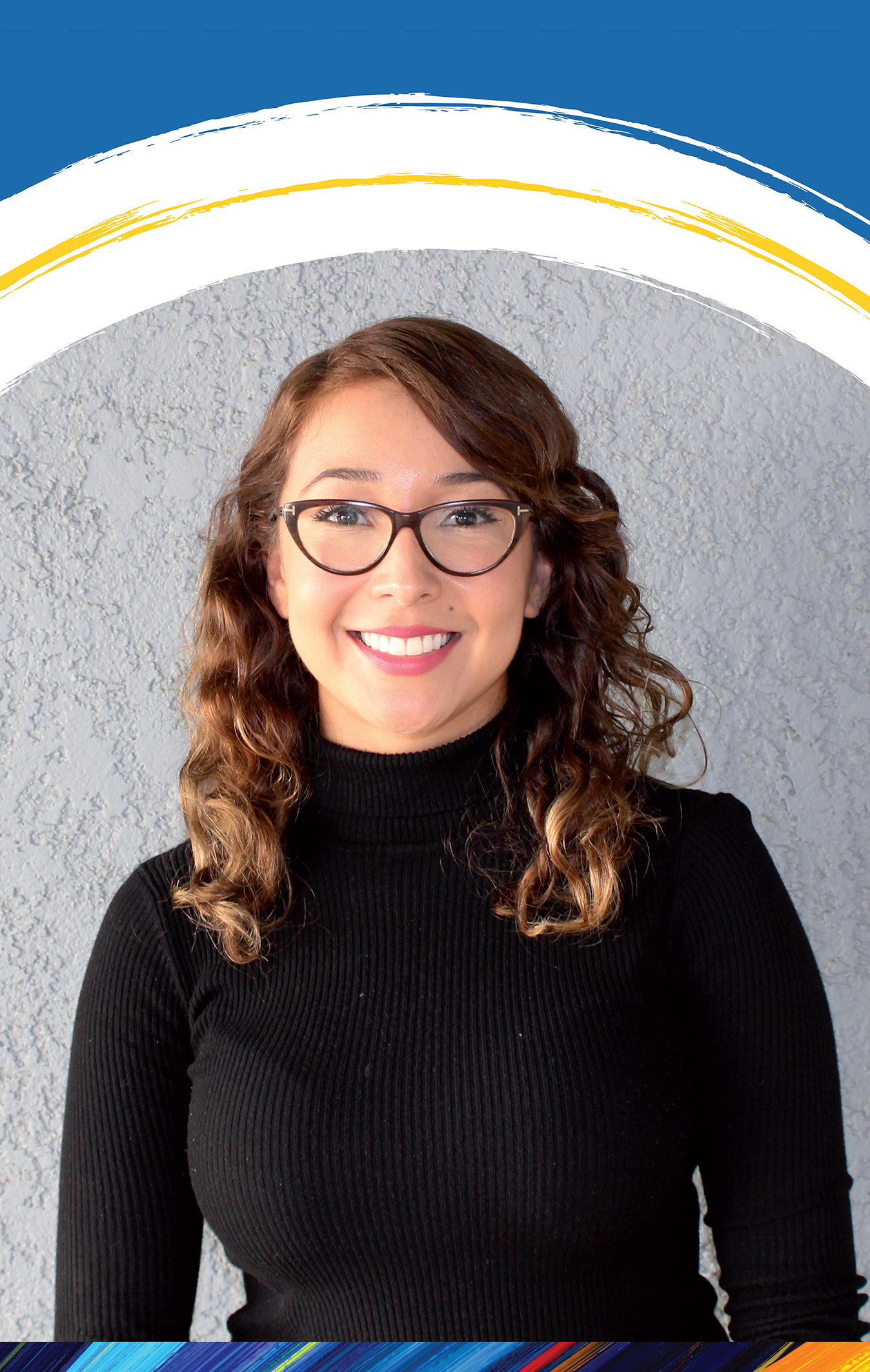 shedding light on how Latinx immigrant families navigate legal, education and health
systems in the U.S.
shedding light on how Latinx immigrant families navigate legal, education and health
systems in the U.S.Vanessa Delgado
Sociology Ph.D.
When she was in middle school, Vanessa Delgado checked out library books about George Washington and the U.S. Constitution, then went home to quiz her mom for her U.S. citizenship test. This reversal of the parent-child relationship is commonplace for children of immigrants. As a first-generation sociology graduate student at UCI, Delgado coined the term “legal brokering” to describe the work that children of immigrants often undertake to help their parents, siblings and other family members navigate their legal status — whether that’s trying to become citizens or avoiding deportation.
My work reveals many different consequences for families that are trying to navigate
this restrictive, exclusionary era in immigration,
Delgado explains.
Born to two undocumented Mexican immigrants who worked as farm laborers in rural Washington, Delgado says that education was critically important to her family, even though her parents had only a few years of formal schooling.
From a young age, Delgado participated in state and federally funded programs aimed at bolstering educational outcomes for low-income children like herself: GearUp, Upward Bound and the College Assistant Migrant Program. As a student at Washington State University, she participated in the McNair Scholars Program, a federal program which aims to put more economically disadvantaged and ethnic minority students on a path to doctoral degrees.
My exposure to research really early on, and the mentorship and support I got from
the McNair program, solidified for me that the Ph.D. was a track I wanted to go on,
says Delgado. She remains in contact with her mentors at The Ohio State University
and the University of Arizona, where she completed summer research programs that gave
her experience conducting qualitative work and a better understanding of what it would
be like as a graduate student in social sciences.
As part of her undergraduate research, Delgado volunteered at domestic abuse shelters in Washington and conducted an ethnography that revealed language and cultural barriers were likely preventing Latinas from getting the help they needed from the shelters. As a result of her research, the shelters took steps to improve their outreach to Latinas.
When it came time to choose a university for graduate studies, UCI’s sociology faculty drew Delgado’s attention.
One of the reasons I came to UCI is that the sociology department has a strong concentration
of faculty who conduct research on children of immigrants,
she says. It felt like a really great fit in terms of the research I wanted to conduct, the
faculty here, the resources they had available, and the opportunity to approach my
project in different theoretical ways.
Her award-winning work since has been supported by the National Science Foundation and featured in pieces popular media, including a recent op-ed for CalMatters.
I want to move away from the romanticized notion of kids helping their parents, and
to shine a light on all this unseen labor that children of immigrants do,
she says. And to unmask the toll it can take on them.
While sociologists have acknowledged that children of immigrants help their parents
navigate language and cultural aspects of life in the U.S. — like when Delgado would
translate paperwork or help her parents during parent-teacher conferences — her research
focuses on a third area where children help their parents: legal brokering.
Because the law plays such a salient role in the lives of undocumented immigrants,
children of immigrants tend to play the role as legal brokers, but it can cause a
lot of strain and pressure on both parents who need the resources and also on the
young adults who are in the position to help because of language and other resources,
she says.
Read more about her findings and published work:
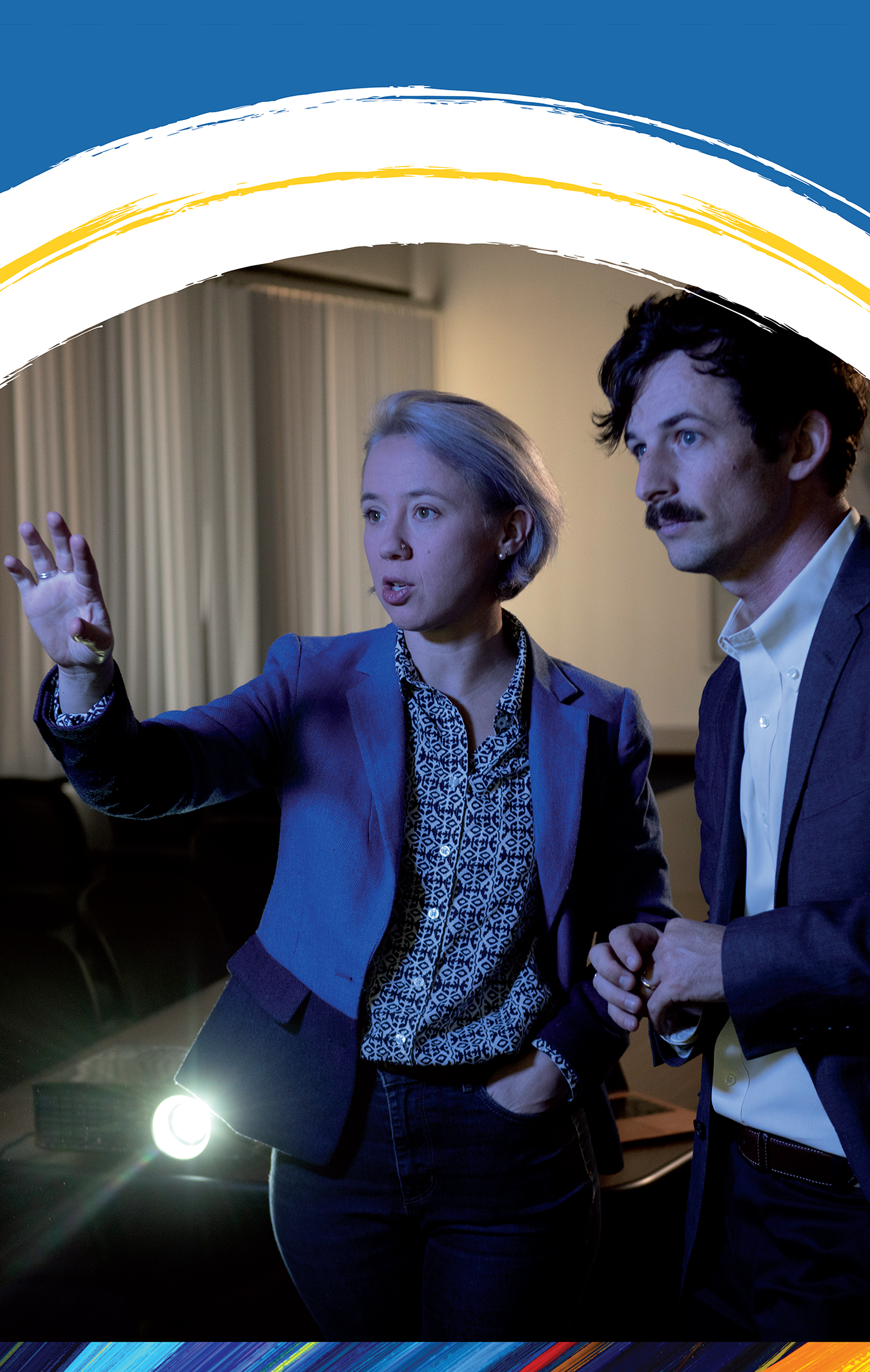 experts on misinformation
experts on misinformationCailin O'Connor and Jim Weatherall
Professors, Logic & Philosophy of Science
From climate change to vaccines, beliefs about science vary widely based on a person’s social networks and information sources. And those beliefs can have far reaching implications for public policy that impacts everyone. Logic & philosophy of science professors Cailin O'Connor and Jim Weatherall, authors of The Misinformation Age: How False Belief Spread, are leading a National Science Foundation-funded study to learn more about the ways in which false beliefs take flight, what this means for public understanding of science, and how we can better understand and ultimately mitigate misinformation.
Beliefs shape action, and holding accurate beliefs about matters of established science
is key to successful decision making in a democracy,
O'Connor says. In order to evaluate public policy, citizens need enough information to understand
social problems and to judge the likely outcomes of possible policy measures.
Interested in learning more about their research on misinformation?
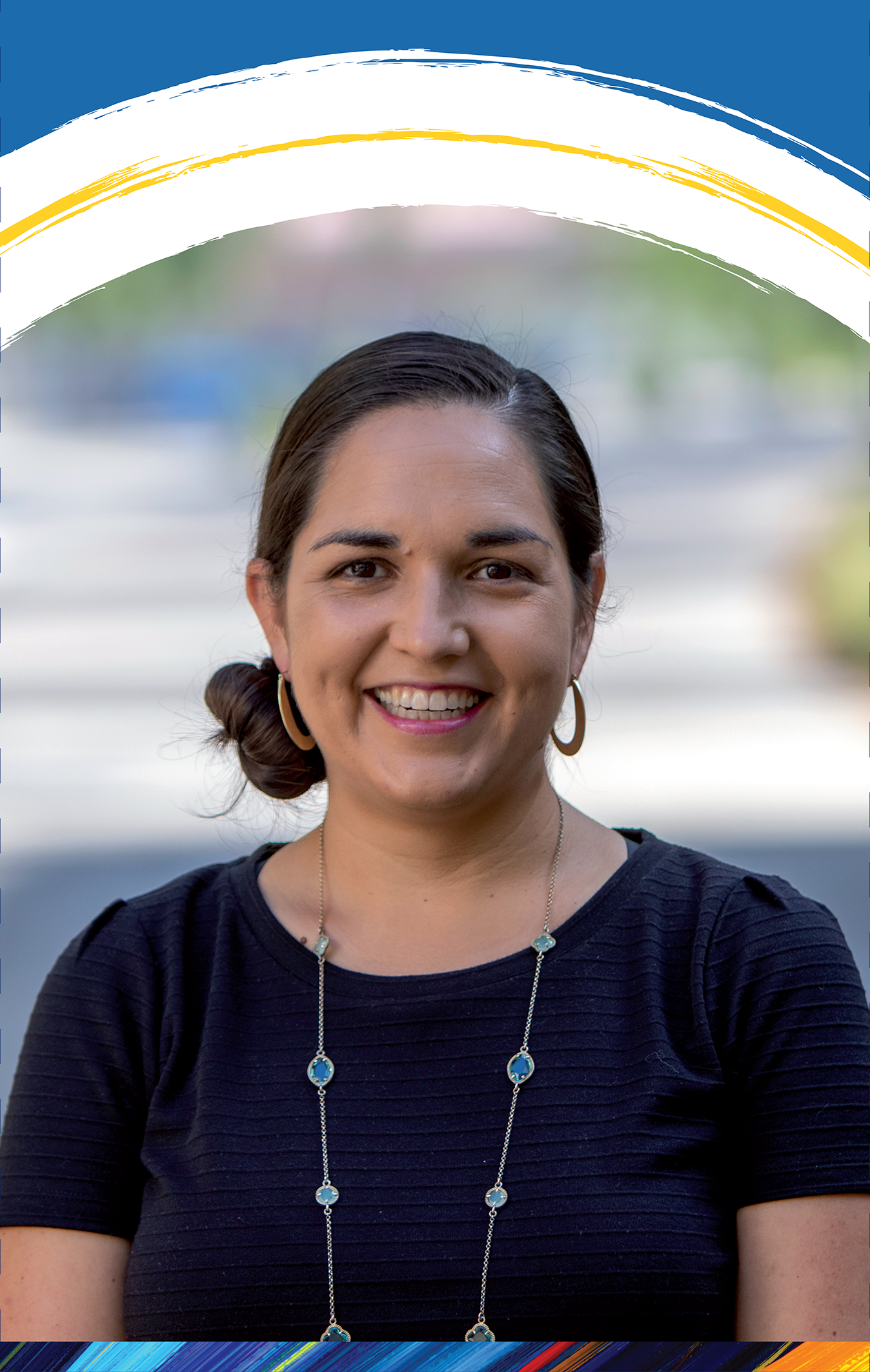 scholar-activist for undocumented students
scholar-activist for undocumented studentsLaura Enriquez
Professor, Chicano Latino Studies
UCI Chicano/Latino studies associate professor Laura Enriquez is working hard to illuminate how undocumented immigration status shapes the opportunities and relationships of young adults. She’s explored the topic from multiple angles, including education, family, relationships and health. Her award-winning book, Of Love and Papers: How Immigration Policy Affects Romance and Family, details how family life and romantic relationships are complicated and compromised by documentation status. Other award-winning studies have taken a hard look at how immigration laws create multigenerational punishment as the challenges of undocumented status are shared with citizen family members in mixed-status families. For the past two years, she's led the 18-campus UC PromISE comprehensive study to understand and document the extent to which undocumented status disrupts students’ education and wellbeing across California's state universities, and how individual student actions, campus resources, and institutional context may help reduce inequalities. The findings, Enriquez says, paint a complex picture of a largely first-generation student population compromised by immigration status.
Academic performance conceals the struggles these students face on a daily basis,
she says, pointing to the rate of students who reported being distracted in class
or losing study hours – 76 percent and 64 percent, respectively - because they were
dealing with or thinking about an issue related to their immigration status. Roughly
half reported weekly concerns about parental/guardian deportation, and more than a
third thought as frequently about their own possible deportation. Her work earned
her the 2020 UCI Academic Senate Early-Career Faculty Award for Research, spotlighting
the young scholar’s outstanding disciplinary contributions, which colleagues describe
as both groundbreaking and policy relevant.
Learn more about her research, findings and on-going studies:
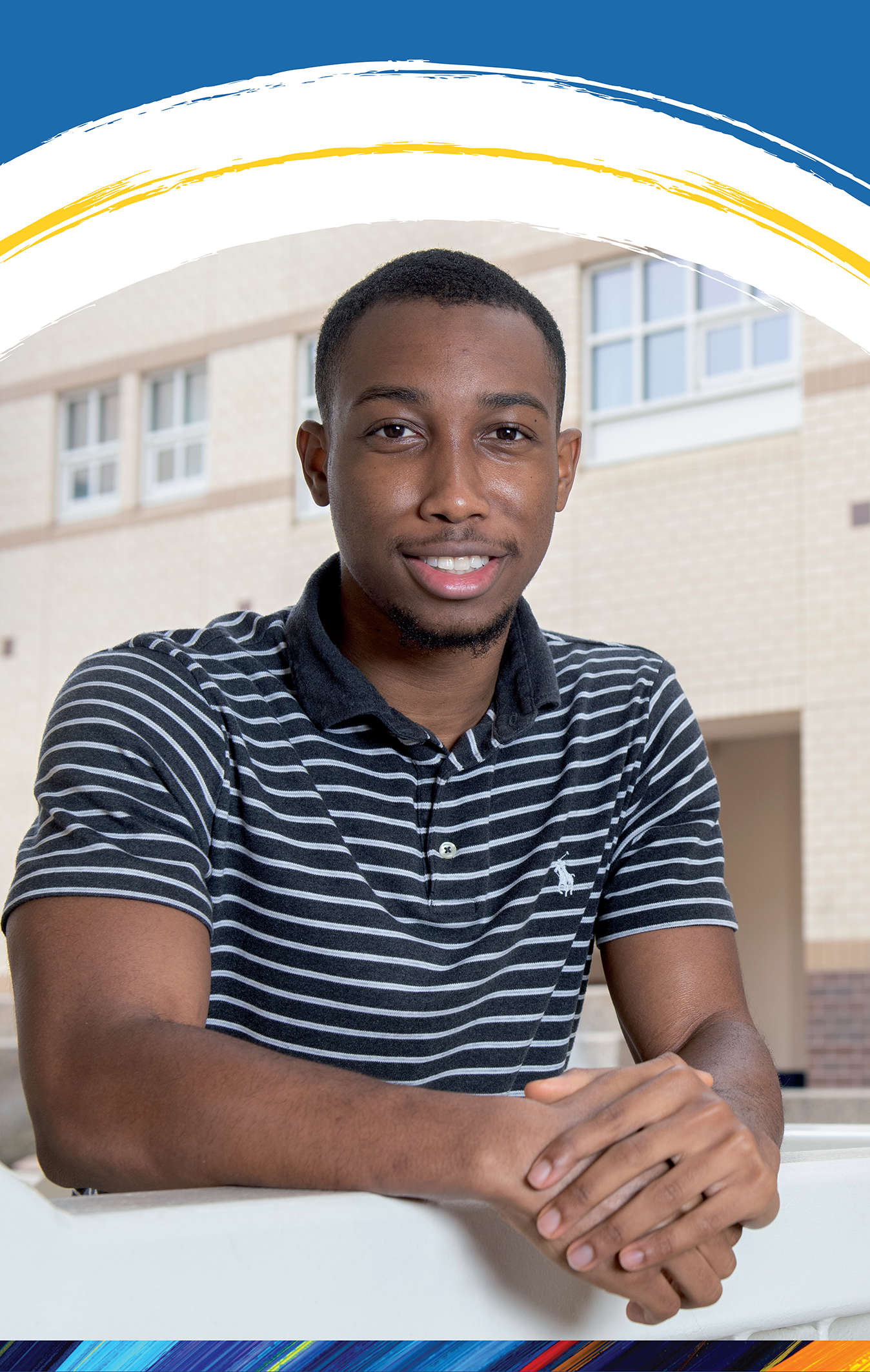 flexing his Anteater entrepreneurial spirit
flexing his Anteater entrepreneurial spiritDavid Sanusi
'21 international studies and Rosten scholar and co-founder of Madagascar Savors
Vanilla ice cream and gourmet chocolate might soon carry a dash of Anteater DNA, thanks to students David Sanusi and Yohan Ranaivo. Last summer, the pair founded Madagascar Savors, which imports vanilla, cocoa beans, cinnamon and other spices from the East African island nation for which their company is named. The original plan was to supply baking ingredients to elite L.A. restaurants, but a twist of fate has them negotiating a deal that could turn both into millionaires.
Sanusi, an international studies major and philanthropic scholarship recipient, and
Ranaivo, a senior in business economics, hatched their venture as roommates in Arroyo
Vista’s Rosa Parks theme house. Ranaivo, who hails from Madagascar, opened up about his life and his family connections
to the island’s spice industry, in which his aunt is the nation’s second-largest
producer of Malagasy vanilla and cocoa beans, Sanusi recalls. After enrolling at UCI,
Ranaivo says, he tried to form a spice import company but ran into problems because
he’s not a U.S. citizen. So Madagascar Savors incorporated under Sanusi’s name. The
partnership enabled both men to fulfill cherished dreams. My dad died of cancer when I was young, so finances were always rough,
Sanusi says of his South Los Angeles upbringing. That financial insecurity has been the driving force behind my passion for entrepreneurship.
To get Madagascar Savors underway last summer, the spice guys took delivery jobs with
Instacart to pay for their initial shipment of peppercorns, cloves and cinnamon. We started with 5 pounds of each product and broke them down into very small samples
that we gave out to restaurants,
Sanusi says. As the pair began making sales, things took an unexpected turn. Through
a networking event in their dorm, Ranaivo met a Temecula marketing consultant with
spice industry connections. He joined the team as a mentor and liaison to potential
buyers. Soon after, one of the mentor’s former business associates – who runs a large
dairy firm – said he was interested in all the vanilla we could supply
for distribution to ice cream manufacturers and grocery stores, Sanusi says. The
deal could be worth millions, he adds.
Learn more about how this Anteater duo is taking the spice world by storm:
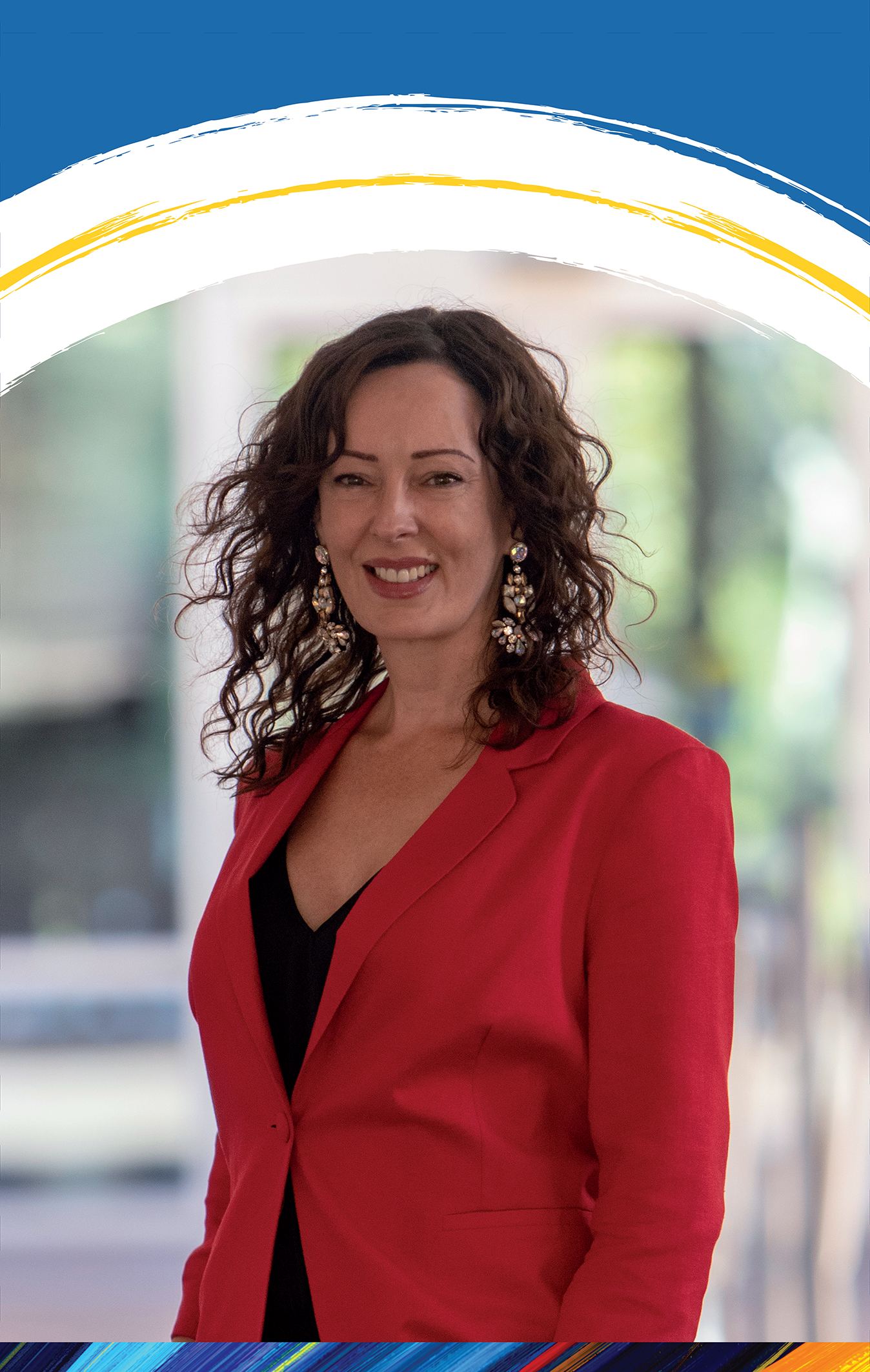 creating opportunities for first-gen Anteaters and veterans at UCI
creating opportunities for first-gen Anteaters and veterans at UCIAnita Casavantes Bradford
Professor, Chicano/Latino Studies
Educator, researcher and mentor. For Anita Casavantes Bradford, the roles are inseparable, each serving as fuel for the others. The first in her low-income family to go to college, she experienced early on the lifechanging power of having academic advocates in her corner. Now, as a professor of Chicano/Latino studies and history at UCI, she’s paying it forward to make sure students like her have the opportunity to thrive.
Casavantes Bradford is a historian of immigration, critical refugee studies and childhood, and the author of the books The Revolution is for the Children: The Politics of Childhood in Havana and Miami, 1959-1962 (2014) and Suffer the Little Children: Child Migration and the Geopolitics of Compassion in the United States (2022). The recipient of multiple teaching awards, her classes introduce UCI students to comparative and transnational Latinx histories, the history of immigration, race and ethnicity, the history of childhood, and critical refugee studies. She is perhaps best known, however, for her advocacy for students, a passion that earned her the 2019-20 Academic Senate Distinguished Faculty Award for Mentorship. This honor punctuates the countless hours she’s dedicated to helping first-generation, low income, underrepresented minority and undocumented Anteaters through programs like the First-Generation Faculty Initiative and the First-Generation First Quarter Challenge.
I want our first-gen students to recognize how their experience has shaped their ideas
of education and how that can motivate, rather than limit, their aspirations,
she says, reflecting on an experience with which she’s intimately familiar.
She’s also deepening her engagement with another UCI student community she’s long been interested in supporting: veterans. Drawing on her firsthand knowledge as the daughter and spouse of military veterans from very different eras, she created the curriculum for UCI’s first course on veterans in history and society. In 2019, alongside social sciences dean Bill Maurer, she helped launch a three-course veterans studies certificate program open to undergraduates – veterans or not
Too often, veterans are portrayed as either heroes or damaged,
she says. Drawing upon critical insights from disciplines like Chicano/Latino studies and gender
& sexuality studies, our curriculum critically and compassionately explores the complexity
of diverse veterans’ experiences, past and present.
Learn more about her award-winning research, teaching and service:
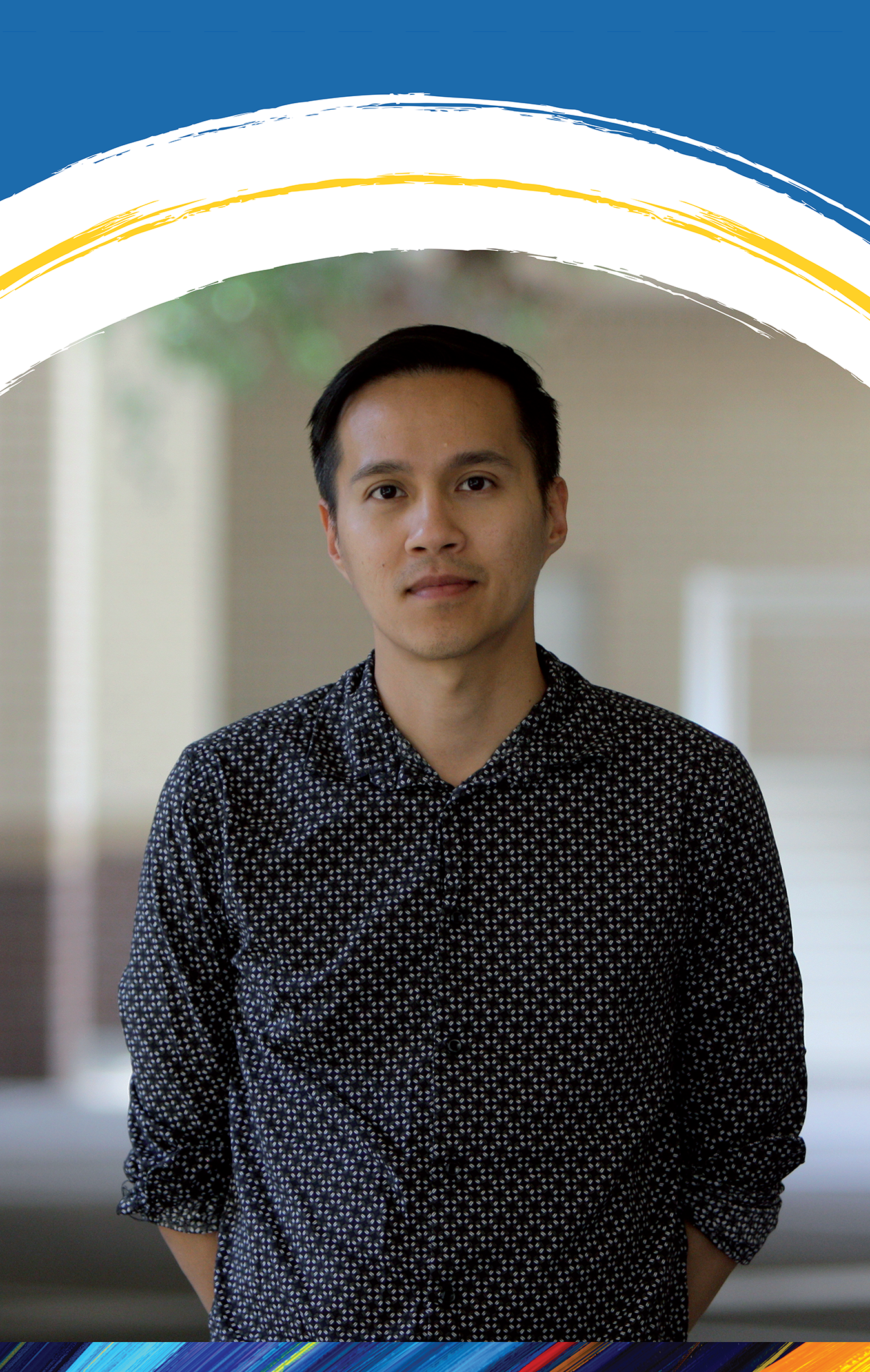 driven by his Vietnamese American heritage to study family, race, migration, and identity
driven by his Vietnamese American heritage to study family, race, migration, and identityLong T. Bui
Professor, Global and International Studies
As a Vietnamese American, UCI associate professor of global and international studies Long T. Bui grew up learning about his family’s South Vietnamese heritage through an American history lens. The militaristic narrative left him with many questions about the people – including his mother and father – who were displaced. He sought their stories through interviews and analytical research for his book, Returns of War: South Vietnam and the Price of Refugee Memory, in which he discusses the importance of recording the experiences of those who fled a nation no longer recognized, but one that’s still very much alive in the memories of the refugees who once called South Vietnam home.
His work, funded by the UC President’s Postdoctoral Fellowship, the Center for Global California, and New Racial Studies Center, has been published in peer-reviewed journals including the Journal of Asian American Studies; Culture, Society and Masculinities; the Journal of Feminist Studies; and the Journal of Vietnamese Studies, among others.
Bui is frequently tapped by popular media to comment on matters related to Vietnam, including recent comparisons of the fall of Kabul to the fall of Saigon, and a piece he penned for The Conversation on why the flag of South Vietnam flew at the U.S. Capitol siege
Learn more about his work:




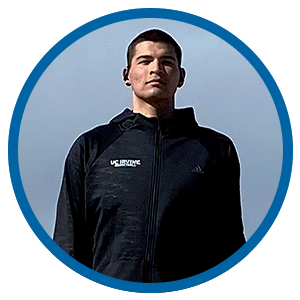
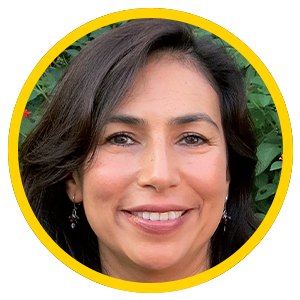
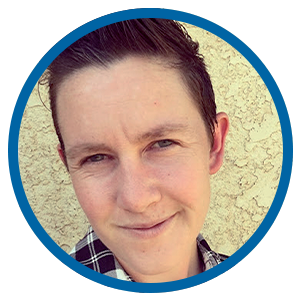

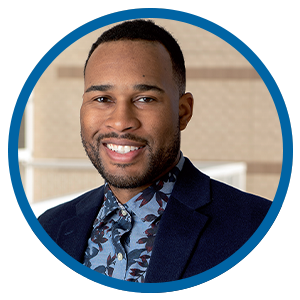
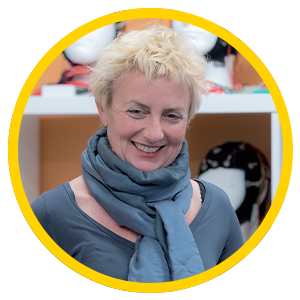
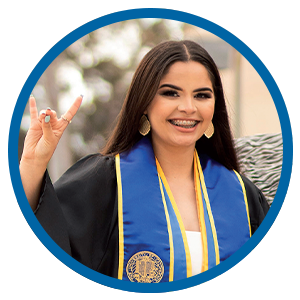

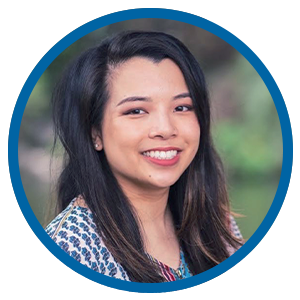
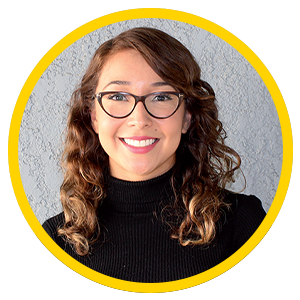
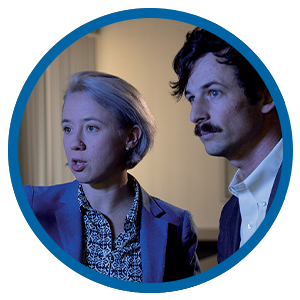
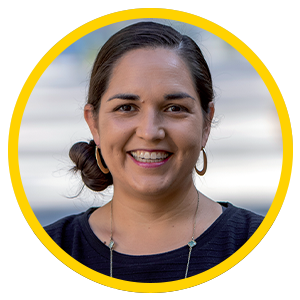
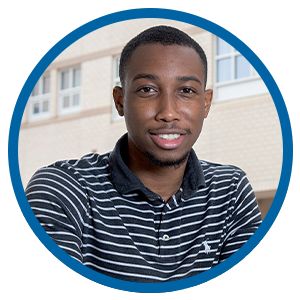
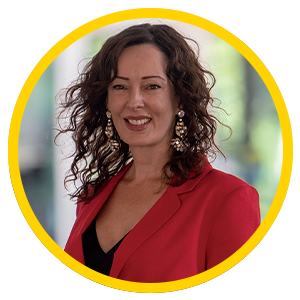
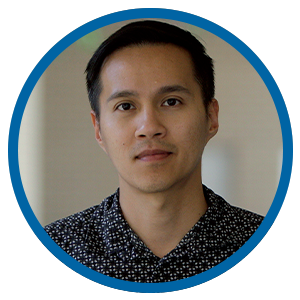
connect with us